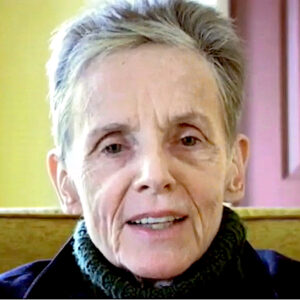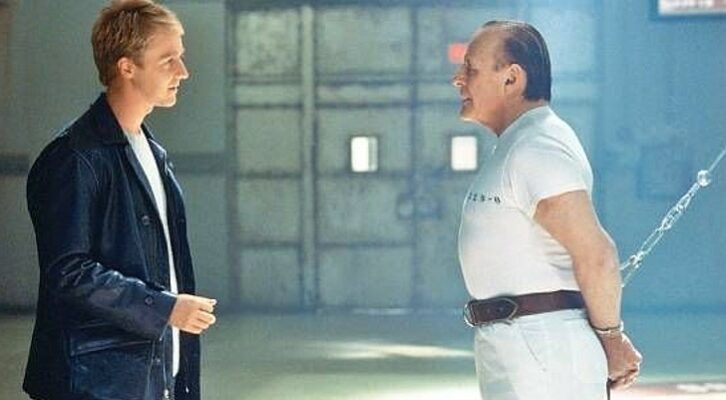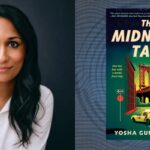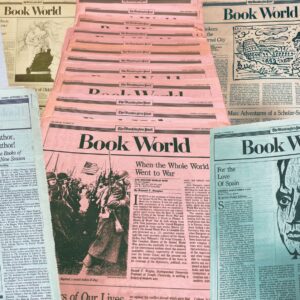
On Race, Research, and the High-Stakes Choices of the Debut Novelist
KAITLYN GREENIDGE in conversation with ANGELA FLOURNOY
There’s an ease with which Kaitlyn Greenidge seems to have crafted her debut novel, We Love You, Charlie Freeman. It’s the story of a black family from Dorchester, Massachusetts, that decides to move to a predominantly white part of the Berkshires. The catch behind this move is that the family must become part of a research project, and so they will have a live-in chimpanzee with whom they are to communicate through sign language. This quirky set-up quickly becomes foreboding. We Love You, Charlie Freeman, titled in faux-Peanuts perfection, doesn’t feel quite like a first novel because it’s risky in so many ways; it erupts with the confidence of a more seasoned writer. Janet Maslin, in her recent New York Times review, called Greenidge’s characters “achingly well drawn” and the book a “terrifically auspicious debut.” Angela Flournoy, whose equally auspicious debut novel, The Turner House, was released this time last year to rave reviews, decided to speak with Greenidge for Literary Hub about the scaffolding of a debut novel in order to explore the decision-making process that comes along with that first flight. Flournoy reminds us that, especially for the debut novelist, “everything is a choice that seems like it could make the whole house of cards fall down.”
Angela Flournoy: Kaitlyn, I’m happy that we get to have this conversation. I’m very excited about your book. I’ve been talking about it on various media outlets for some time now. Basically how I envisioned this conversation was to talk about craft and specific decisions that you made in the book that I think are interesting, as some of them remind me of some of the decisions I made in my own novel. Other decisions seem like the sort that first time around, they all seem kind of scary, because anything that is not just one POV, one time, linear narrative, is a risk. Is this your first novel? Or did you write another before?
Kaitlyn Greenidge: No, this is first one I’ve ever written.
AF: Ok, yeah, especially in that case, everything is a choice that seems like it could make the whole house of cards fall down—unless you don’t live in a web of doubt. But I write in a dark room of doubt. I guess first we should talk about what your novel is about. Can you give me a synopsis?
KG: Sure, so it’s a novel about a black family from Boston in the early 1990s, and they move to a nearly all white town in the Berkshires. They move there to take part in an experiment where they are teaching sign language to a chimpanzee. Parts of the novel take place in the 1990s, and then parts take place in 1920s, in that same town in the Berkshires, and also in the Belgian Congo, and it’s this whole thing about history and how the past affects our present.
AF: I’m interested in, broadly, what made you set the story in the 90s, and how you made those setting decisions?
KG: For the 90s part, I wanted the family to be asked to do this weird experiment thing, and it to be clear to the reader that there is another reason they’re being asked, [aside from the fact] they are the best at what they’re doing, which is what the mother in the family would like to believe. In reality, it’s a PR move on the part of the institute that’s hiring them. And for that to be unclear to the family, the past of the institute had to be unclear, and if it took place today, everything is Google-able. It couldn’t take place now because half of the plot would go away with one Google search. So that was part of setting it then. Also, I wanted to set it then because most everybody right now has nostalgia for the early 1990s, so I wanted to try writing about that time. As for the other two time settings—the 1920s in Berkshires and the 1920s in the Belgian Congo—part of it was in the plotting of the book, explaining the past of the institute, and part of it was trying to figure out where certain themes I wanted to talk about fit really nicely with the history of the Belgian Congo in that time period. As I read more about the capital city, Leopoldville, there’s just a bunch of crazy cultural things happening in that city in the 1920s. There was an Afro-Cuban jazz scene there for some reason, and a lot of crazy fashion stuff happening, and then also of course the atrocities of the decade earlier in the Congo, that was basically still affecting people.
AF: Did you always envision all these parts being a conversation or was it something that as you wrote for it and researched, you realized those things were necessary to bring in?
KG: I always wanted them to be in conversation, because I really love historical research. My job for most of the time while I was writing this novel was as a historical researcher at a black history museum here in Brooklyn. One of the things I like about historical research is that you find that certain facts feel like they’re talking to each other across time or across space. What’s that Mark Twain quote? “History doesn’t repeat itself, but it does rhyme.” I really like those moments, when you’re a researcher and you’re in the stacks, those moments are between you and the paper and you’re like, “This is really cool, but how am I going to tell this story?” Nobody cares, you know. And so part of it was the selfish part of wanting to take all of those moments that come up when you’re researching in general and put them in a some sort of frame that makes them interesting to people.
AF: Rhyming is a good way to put it; it’s like reverberations, when you read back and you’re like well wait a minute this is an echo or a precursor of what’s happening in the present narrative you’re working on. There’s an anxiety that for me comes up in how do I do that in a way that doesn’t ascribe too much of a one-to-one correlation, and still leaves room for readers to discover themselves without me telling them it happened before…
KG: Yeah, there’s always that disappointment. I feel that disappointment when I’m reading a novel or a piece of nonfiction, and I do want that moment of discovery and the author intrudes and is just pointing things out to me. That’s one of the reasons it took a while to write the book because that was my first instinct in writing it. So I had to go back and take away the more pedantic parts and figure out how to make it into a piece of fiction, which is a conversation with a reader—it’s not you lecturing the reader. Hopefully. I guess that’s bad fiction.
AF: And how long did it take to write the novel?
KG: I started it in 2008 in my first semester of grad school, so it took a long time.
AF: On a setting level, especially the parts that are in the 1920s here and in the Congo, what sort of research did you think was necessary to make it feel unique?
KG: I felt, for a little while, I needed to know everything about both of those time periods, and then I’ll just pick from all of the stuff that I’m reading, but that quickly became really impossible. So I tried to think of the actual scenes that were interesting to me, the ones that I wanted to write and that I felt were needed in the book. When I got to something in the scene I didn’t know about or needed some sort of detail to make it work was when I stopped and did the research about it. But it took a while to train myself to do that and not feel the anxiety or the need to read everything about a thing. Part of it is that fear of one reader who is like, “Oh, there are no oak trees like that in 1950s”—that one annoying person! That person is going to exist anyway. I’m sure that’s going to happen, and I’m sure it’s happened to you, where they say, “actually this was not right or whatever.” That’s just going to happen. I had to let go of the anxiety about that. I was also thinking a lot about Edward P. Jones, who claimed that while writing The Known World, he didn’t do any research at all. He said, “I’m just going to have to imagine my way into something.” I’m not sure that’s necessarily true…
AF: And in another interview he said he read two dozen books or something. I’ve also read that he said 15 books…
KG: I know! I don’t think that’s necessarily true, but I took that sentiment. I think he said something to the effect of “I don’t need to sit here and research what kind of saddle someone would use in 18-whatever. I have to write a scene and then I will describe what kind of saddle was needed in that moment.” So that’s how I tried to think about it to keep moving forward and not get stuck in research stuff.
AF: And, really, if a character uses a saddle everyday, it’s just a saddle.
KG: Yes, exactly! It’s not “my western saddle that has an extra loop” or something.
AF: I think that’s something where, even readers, when they don’t notice, it’s kind of cool—obviously you don’t want cellphones ringing in the 1920s—but outside of those big anachronisms, if it’s rooted in character, the way that we exist in the real world, we take for granted that this is the way it’s always been, then usually characters can as well. But it is something that at first you feel you need to learn it all, absorb it all…
KG: Did you do a lot of research?
AF: I read no books… No, I’m just kidding. I did a lot of research. The first year that I was working on my book, I really didn’t write that much, I just did research. And at some point it became clear that I was just procrastinating. It was my new hobby to go to the library and put books on hold. When I actually wrote the parts that required a lot of research, I didn’t rely on my notes. At that point it had to be the things you remembered, the most exceptional facts. I think that probably situating it in another country, having it be in the Congo would have been another level of pressure on me.
KG: Yeah, part of it is that the character who goes there, she’s an American in the Congo, so that helped, cause she’s noticing certain things. She’s traveling in a dream state, so that helped cover up a lot of holes. I would just remind myself that it’s a novel; it’s not a nonfiction article, not an essay, not a history book, it’s a novel, which is a very wide open artform, but also means a lot of things that those things are not.
AF: Another thing that struck me when I was reading your book was the facility you have with dialogue. Unfortunately I still feel like I read things with black characters—really just characters—race is one element of it, but everyone code-switches. It’s not just people of color who code-switch, but there’s a way that books are written a lot of times where the dialogue, especially in contemporary novels, is in a code that’s nobody’s code.
KG: Yeah, “novel speak.”
AF: Yes. So I wanted to know how you thought about dialogue. When you read, do you say it out loud?
KG: Yeah, I say it out loud. I try to read everything out loud. A lot of the time the dialogue will come from actually hearing someone use a turn of phrase. From there, I’m like, “That’s cool, I want to use this in a book, a scene,” and so the scene will be built around just trying to get that line in there, which sometimes works and sometimes doesn’t. I was really helped in that, for a long section while I was writing this book, I was interviewing people constantly, and people from different ages constantly, and sometimes it was people in their thirties and forties, sometimes people in in their eighties and nineties—it was a wide range of people talking about really personal things and sometimes not very personal things. I also had to transcribe these interviews, so that was a huge help, because constantly having to listen to people and re-write what they were saying and re-edit what they were saying too, as well as thinking about how people withhold or keep information from coming out in their speech, all that was really helpful.
AF: I was interested in particularly how people, in this novel, use humor to not address things head on. Do you have any particular authors you’ve read that you think employ dialogue and humor really well? That you harken back to and read and keep close to you as you’re working?
KG: Yeah. I really like Jincy Willett, who wrote that book of short stories, Jenny and the Jaws of Life. That short story collection is really great, and the dialogue is phenomenal. Also, Evelyn Waugh’s novels. I love his work, and his dialogue is great and sad and funny at the same time.
AF: I can’t ask this without laughing, just because it’s the question that I get that I’m always like, “I don’t even know what you mean.” I think it’s usually because it’s just not posed the right way. They say something like, “Your novel deals with race,” which doesn’t make sense to me as a statement because there’s no American contemporary novel that’s not dealing with race.
KG: Yeah, exactly.
AF: But I think particularly given the historical component and the reality that this is race-based research that is happening in your novel, do you feel comfortable saying it’s a novel about race?
KG: Yeah, I think it is. I used to work for this black history museum, and before that I worked as a tour guide for Boston’s black heritage trail, giving people tours of Boston’s black abolitionist history, so I spent a lot of time talking to a variety of people about black history in the 19th century, and then a lot of those conversations turned into conversations about race, particularly about black people in America today. The tours were with everybody, with school children, with small children, with adolescents, with people who had read a lot about it, with people who had read nothing about it, people from other countries—just a lot of conversations about this and a lot of people’s crazy theories about black history that were spouted at me. So I was thinking about this a lot, and it feels weird to say it’s about race, because I feel that’s such an amorphous term, and people assume that means one thing, but like you said, there’s no real there there when you dig into it. But I wanted to talk about the ways we describe black identity, both how black people ourselves describe black identity and also how it is described to us by a dominant white culture and how those descriptions are always lacking in some way, because everyone is an individual, so there’s no way a description can encompass their sole being, you know? And the descriptions aren’t meant to encompass a sole being, they’re meant to encompass other things that are oftentimes not in your interest. So the very nature of how you’re being described, and the words used to describe your identity, are always lacking in some way. So I wanted to talk about that, about the limits of those descriptions, and I think that people continually—through art, music, research, history, and learning—attempt to fill in those gaps, but I feel like it’s the nature of why we try to ascribe blackness in certain ways, that there will always be those gaps there. And so, how do we navigate them, and how does that make people feel?
AF: I’m from California, and have Midwestern and Southern roots, but what stood out to me was that I don’t know if I’ve ever read a New England black story.
KG: Yeah.
AF: It’s different! And I feel like that’s something that’s flattened if the conversation becomes one about race, as it’s not acknowledging all the diversity that’s in that supposed race. Emphasis on supposed. Because there are things that are recognizable and similar, but there are things that are very different. Similarly, the book, in addition to being one that more overtly talks about, or examines, what it even means when people talk about race, another thing I noticed was that you really inhabit a male character in a way that people think women can’t. I really enjoyed doing that in my novel. I spent the most time with a 64-year-old black man.
KG: Did you choose that or come along it as you were writing?
AF: I found that the gender was really secondary. I knew I wanted to focus on the eldest and the youngest, and that I didn’t want them to be the same gender. I wanted a patriarch who was not really the patriarch and had some sort of beef with the real actual patriarch. And when I decided that it was a man, I don’t know how much that dictated my day-to-day writing. Except, obviously, he has love interests and desires, and also has a certain chauvinism about him—I tried not to hide that. He does think that he has the best ideas. And he does think that his sisters are just silly. And those are things I thought were important to explore, without necessarily punishing him for those views, because in life they don’t get punished! I wanted him to just have these ideas, and have them be, in his mind, fact. What were some of your considerations?
KG: I think, for the father character, I wanted to write a father who was overtly affectionate. I don’t want to make this father figure into someone who is stern and withholding because that seems very cliché. And I think it would actually be a much bigger challenge to write about his kind of a father. Because I’ve seen father figures like this, that are so caught up in their feelings, and are so affectionate and so loving that it’s overwhelming for him and his family. So I thought that would be interesting. I wanted to write that kind of character. So that took a while for me to figure out, because I had to do actual character work, like what are his motivations? And how would he express these things in a way that is natural to the book and feels real to the character?
AF: It also helps, going back to setting it in the 90s, it helps from a plot perspective for the father to have the personality he has because he’s enthusiastic about what his family is enthusiastic about, to a certain extent at least. And going back to the small choices that feel big when it’s your the first time, so you have this family that is the present day narrative, and you have multiple POVs within that, and instead of having all close thirds, you have one first person, and then you have a round robin of close thirds. Why?
KG: The biggest thing I struggled with the first few years was what POV it would be in. And I went back and forth and back and forth from first person to third person to first person. For a long time the other family members were also written in the first person. Then that just felt very wrong, and it also felt as a first-time novelist that I don’t know if I have the capacity to write a distinct first person for all four of these characters.
AF: Right, and then if you do, it could just be yelling.
KG: Yeah, exactly! It could be obnoxious. It could come off as too much. And so the first person that felt most natural was the oldest daughter Charlotte. So I kept her voice, and then I tried switching all those others into a really close third. For a long time I had all this anxiety about who is the close third observing this? What’s happening? How can I locate this close third? And then, after a while, it was like, it’s here in the novel and I’ve read it over enough times that now it’s just happening. I’m not going to question that because a casual reader probably won’t question that. And I’ve read stuff where the POV is switched, and if I’m carried along enough in the book, I don’t question it. In grad school we used to talk about teaching the reader how to read your book. So if you’re really clear in the beginning about how these switches are supposed to happen, the reader will follow you anywhere. But if you hesitate, the reader will be like, I don’t understand what you’re trying to do.
AF: It’s like a breach of contract. It’s a contract with the reader. It can be a lot of pressure, but it’s like foregrounding the narrative strategies that you’re going to use. The readers won’t notice them as narrative strategies, but they will sort of absorb them as rules to the world.
KG: Exactly.
AF: Another thing I found fascinating in the book is that no one is deaf, and yet sign language plays such an important part, so where do these ideas come from?
KG: So my mom knows sign language, and she’s not deaf. She’s fluent in sign language, and when we were growing up, she’d use it with us. She learned because she just really fell in love with sign language as a teenager. She went to a deaf college. She was very into it. As I was doing research for the book, I found out there was this whole dialect of black sign language, and ebonics of sign language, and I realized I had to use that, because I was fascinated that this exists. And so, because of my own personal history, it didn’t feel weird to have nobody in the family be deaf, although as I was trying to solve the book that was a big question. But I just like the idea of a character becoming really obsessed with another culture or language that is ostensibly removed from their own, but then they organize their entire life around it. I know people like that, they’ve rearranged their entire adult lives around this one obsession, and they live like that for 30 years until they are a part of whatever subculture they’ve invented for themselves. So I always find that interesting, when people pick those obsessions.
AF: Yeah, it’s almost why some people are afraid to take one yoga class.
KG: Exactly! They’re like I don’t have time for this.
AF: I actually remember having seen people using black sign language when I lived in Washington, DC. How challenging was that to describe the differences on the page?
KG: It was really challenging because it felt unnatural to describe everyone’s hands all the time. So, in the book, it italicizes every time when someone was signing, so I wasn’t constantly saying, “And then her fingers moved like this.” Then I tried to only describe the signs that were either important for a scene or had some sort of other meaning to them. That was another really hard part about it, why the writing took so long, because I’m not really that great at describing physical gestures. It always feels unnatural to me when I write something about a very specific physical gesture. When describing something in a hand gesture, I couldn’t rely so much on metaphor to describe it because I wanted the reader to understand what the person’s hands were actually doing.
AF: Yeah, when you take away some sort of correlating thing like other movement, it makes it difficult to figure out how anyone’s ever doing anything.
KG: Yeah, it’s really hard.
AF: Without falling into an abyss of adverbs or something.
KG: Also, we only have one word for hand, so then you’re repeating the word hand eight times in a sentence and it’s awful.
AF: Lastly, I don’t want to ask you what you’re working on next, but now I see why people do it in interviews. It’s a nice way to end. So I’d like to know what you’re thinking about, now that you’re out in the world. Well, you’re not out yet, you’ll talk about this book for a while, but you’re out of the logistical world of writing it.
KG: I’m really eager to start another book, eager to start the research for it, because I don’t want to take another eight years on a book. Famous last words, I know, but I would like to start writing other stuff really quickly. It feels really anti-climactic, because it feels like this thing you’ve been waiting for a really long time, because nothing really changes day-to-day. And now I’m leaving here to go work my day job and hang out with a bunch of eight year olds and they don’t care that I have a book out, they’re just going to be like, “Where’s my apple juice?” So that part is really anti-climactic and weird. And then I’m mostly eager to have people read it who aren’t obligated to read it.



















